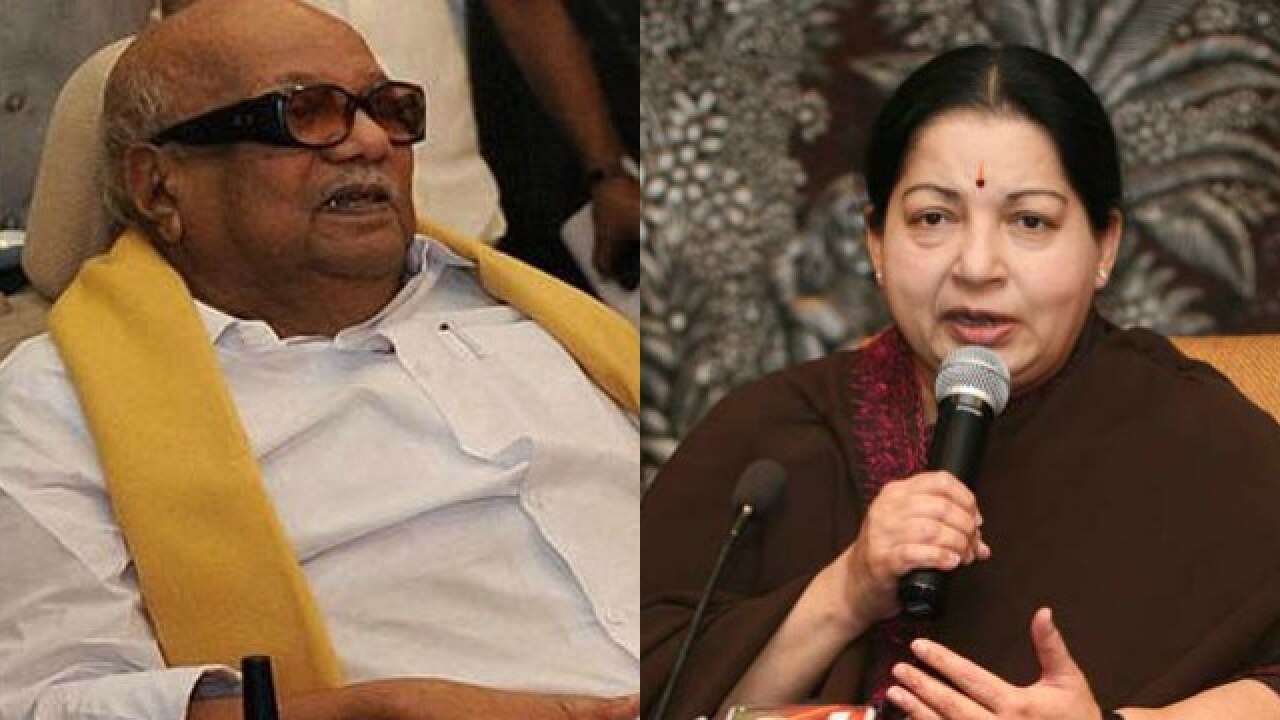
After the eye-popping freebies promised by the AIADMK and the DMK to the Tamil Nadu (TN) electorate, it is time that the political class and civil society do a reality check on their impact on the economy, and on people’s consumption habits. Unlike political parties in other states who make conventional election promises that usually revolve around improving governance and law-making, TN’s Dravidian parties have patented a unique system of patronage modelled around consumer goods and services. And contrary to the usual grouse among voters that poll promises are forgotten after the elections, the AIADMK and DMK have actually delivered at least the freebies like mixers, grinders, television sets, if not the infrastructure development promises like roads, power, and piped water supply. So there is no reason to think that TN Chief Minister J Jayalalithaa and bete noire Karunanidhi are taking voters for a ride with their promises.
While both promised free cellphones, the DMK has displayed more clarity and promised smartphones. Both have also offered free laptops with free internet for students. To Karunanidhi’s sop of a student loan waiver, Jayalalithaa has responded with a farm loan waiver. Jayalalithaa has also assured free set-top boxes to the state-owned Arasu cable network subscribers, which is a business rival of the DMK-aligned Sun Network. After promising prohibition in a phased manner and baby-care kits, Jayalalithaa is aggressively courting women with 50 per cent subsidy on scooters and mopeds, nine-month maternity leave, and gold jewellery. All these promises are in addition to the surreptitious gifts in cash and kind that these two parties slip into the hands of voters on election-eve.
The trouble with these promises is their disconnect from systemic reforms even as they threaten to empty the state exchequer. The cheapest cellphones and smartphones cost around Rs1,000 and Rs4,000 respectively.
Distributing these to TN’s 1.4 crore households could cost between Rs1,500 crore to Rs6,000 crore. Similarly, the outstanding education loans exceed Rs16,000 crore. A farm loan waiver in 2006 saw cooperative banks write-off Rs6,800 crore. Ten years later, with agricultural distress further intensifying, a farm-loan waiver will cost much more. Similarly, revenues of Rs22,000 crore from liquor sales will have to be foregone. Not surprisingly, this history of competitive populism has come at a cost. TN has piled up debt faster that all other states in the past five years. Its outstanding debt stood at Rs1.95 lakh core in 2015-16 with fiscal deficit projected to be Rs36,000 crore this fiscal.
Because of the state’s strong industrial base and a strong services sector, TN politicians have been able to splurge on populist measures without worrying about the debt component. Some of these freebies have contributed to household income and family welfare by making life easier for women. However, the implications of the freebie culture remain to be understood fully. Does a state that loads its citizens with free gifts undermine the value and importance of labour? The trade-distorting nature of these freebies are another issue. It is possible that the Amma canteens and the free accessories have come at the cost of local businesses, jobs and the retail sector.
However, the macroscopic indicators are showing no signs of an impact with an impressive four-fold growth in the state’s economy from Rs2.5 lakh core in 2004-05 to Rs9.6 lakh crore in 2014-15. The Dravidian manifestos are also a snub on the Election Commission’s unwarranted attempt to set guidelines on manifestos. One of the guidelines asks parties to indicate the rationale of promises and the ways and means to finance them. Neither, the DMK nor AIADMK seem to have paid heed! Adopting a preachy tone, the EC had said: “Trust of voters should be sought only on those promises which are possible to be fulfilled.” With TN politicians pushing the limits, voters, clearly not as naive as the EC assumes, have to judge the incumbent government’s performance and the viability of promised freebies.